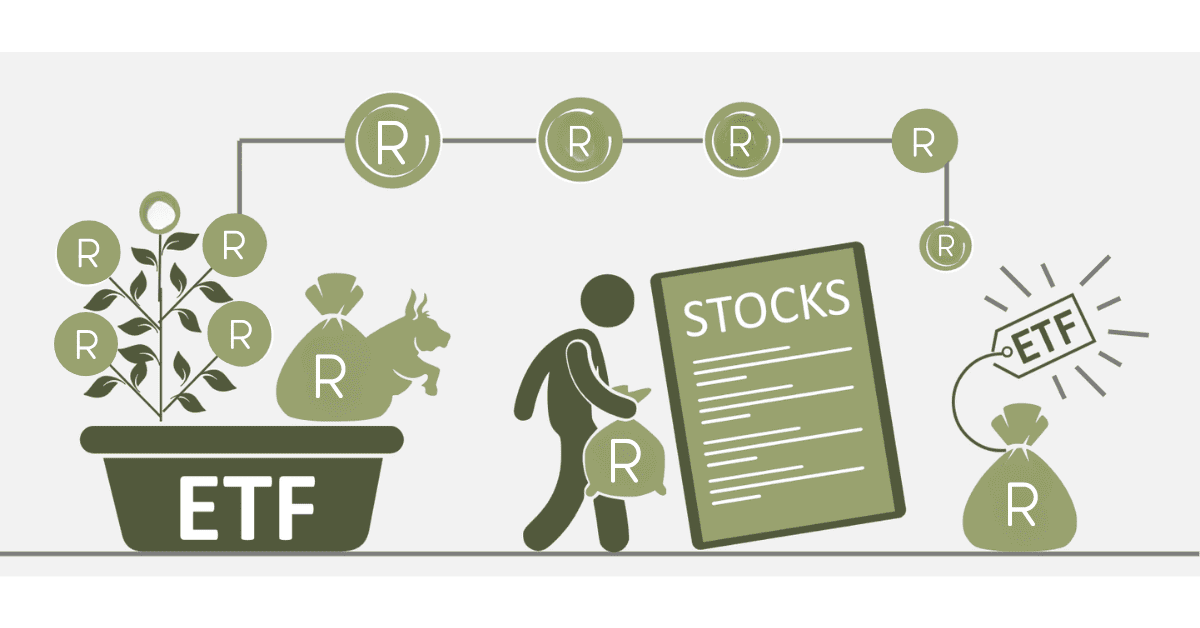The concept of owning shares allows the general investor in South Africa an easy way to become a company owner and benefit from their growth. Whether you’re a new or highly experienced market participant, understanding shares becomes highly relevant in navigating the Johannesburg Stock Exchange- the largest in Africa- whose possible returns are very tempting. This article has been put together to explain in simple terms what shares are, the basis one needs to know before investing, the types of shares available, examples of shares on the JSE, and the minimum amount one needs to invest.
What Are Shares?
They are units of ownership in a company. When one buys them, it will only mean he or she is buying a part of that firm, and hence, he or she becomes a shareholder. Shareholders have privileges whereby they vote during significant business activities and become entitled to dividends if the company declares profits. The units are traded on stock exchanges like the JSE, and their prices fluctuate based on the prevailing market conditions, the company’s performance, and market participants’ perceptions.
What Basics Do I Need to Know Before I Invest?
You should understand diverse basic concepts and steps before diving deeper into investment in shares so that your money may be safeguarded and you make the right decisions.
- Risk and Reward: High returns are probable with the stock market, but as sure as night follows day, so do losses follow high returns. A share typically changes in price due to various influences, such as the market attitude, firm performance, and economic events that may affect company yields. It’s essential to understand your risk tolerance before you begin venturing. Are you comfortable losing some or all of your investment in exchange for possible gains?
- Diversification: Investing all your money in a single-share or even one sector is risky. Risk can be spread by purchasing shareholdings in different sectors, asset classes, or regions. For example, one can strike a balance by balancing mining, retail, and technology against the poor performance of any one sector.
- Time Horizon: Shares are more suited to long-term investment. Although short-term gains can be realized from share trading, their value tends to appreciate over time. Therefore, a long-term perspective of at least five to ten years allows you to consider short-term market volatility.
- Understanding Financials: To make a sensible decision, it is vital to understand the company’s financial performance. Key metrics to consider are EPS, P/E, and dividend yield. These metrics indicate whether the company is overvalued or undervalued and if it presents a promising avenue for growth.
- Costs Involved: This includes brokerage that might eat into your profits, so be mindful of how much it will cost to buy and sell your shares and the resulting tax implications for dividends or capital gains within South Africa.
Types of Shares to Invest In
When investing in shares on the JSE, a distinction shall be made between the classes of shares one can buy. Each class possesses particular characteristics and advantages:
- Ordinary Shares: These are the most common type of shares; you have voting rights at company meetings for the ordinary shares in your possession. However, you earn dividends only if the declared profit after tax is shared with shareholders. These shares take up a variable valuation based on the company’s performance and general market situation. Companies listed in South Africa include Shoprite, which issues ordinary shares, and Naspers.
- Preference Shares: The preference shares are those shares that grant shareholders preference over ordinary shareholders. This is mainly regarding dividends. The usual dividend paid to the preference shareholder is fixed without considering the agency’s performance. They will be paid first if any firm liquidation occurs before the ordinary shareholder.
- Convertible Preference Shares: As the name signifies, this category of shares can be transformed into ordinary shares after some specified duration. It allows its shareholders to switch to ordinary units if the company performs well and its share price hikes.
- Redeemable Preference Shares: The company can re-purchase these at an agreed value. This typically happens at the board’s discretion or after a specified date. Shareholders may return their original capital investment with possible extra interest.
- Treasury Shares: These are those the company buys back from its shareholders. These shares cannot vote or receive dividends and are often keenly held by the company for various strategic purposes, such as being reissued to employees as part of an incentive plan.
What Are Examples of Shares?
Several well-known companies are listed on the JSE, and South African investors have many choices. In this regard, let’s consider some examples of shares that investors might consider:
- Naspers: It is a diversified South African group of media and technology companies, including e-commerce, food delivery, and digital platforms. Being one of the country’s most popular stocks, it represents the largest singular constituent in terms of the total market value of the JSE economy.
- Shoprite: With its core business being one of the largest retailers in SA, this firm has always posted solid growth. With over 2,800 stores in 14 African countries, the organization has become a reputable venture to fall back on during challenging economic times.
- MTN Group: It has grown to be a large telecommunications firm in Africa. The subscription ratio of the company keeps multiplying at an exponential rate, and its finances are in order. Hence, the company is the first choice for all investors willing to take exposure in the technology and telecommunication sector.
- Grindrod: This firm deals with logistics and financial services and operates in 24 countries. Its units are cheap; hence, it is a good deal for capitalists looking for affordable entry points.
- Sibanye Stillwater: This mining firm focuses on precious metals and has garnered attention due to its solid earnings and growing customer base. It is considered a valuable stock for those interested in the resource sector.
What is the Minimum Shares I Can Buy?
The minimum number of shares one can buy on the JSE will differ with a specific investment type. For example, the smallest quantity may range as low as R300 a month when considering the ETFs.














